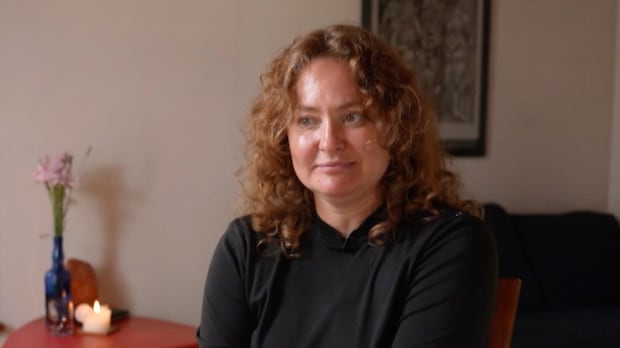Emily Bogen doesn’t quite remember the moment her family suggested it was time to get her help.
After past struggles with alcohol, she was battling prescription drug addiction and neurological symptoms from Lyme disease. The Los Angeles resident knew she needed a treatment centre with specialized care to help her situation.
“I started to experience unusual things … I did start to struggle with the procedural memory stuff. I would struggle to figure out how to get ready for work. I just have never not had control of things,” Bogen told the fifth estate.
Bogen’s mother, Shawn Bogen, searched online and came across a privately owned residential treatment centre operated by Nomina Wellness on Vancouver Island.
This Nomina Wellness residential treatment centre on Vancouver Island is still owned by Nomina but is being used by another company. (Richard Grundy/CBC)
But what seemed like an answer to their problems turned into an ordeal. They say they were promised a tailored treatment plan, one-on-one care and five-star service, at a cost of more than $30,000 for three weeks of care. But it never materialized.
This Nomina treatment facility and another in Courtenay, B.C., were the sites of several troubling issues, including the overdose death of a 27-year old man in October 2024.
Watch the full documentary, “Dying to Recover,” from the fifth estate on YouTube or Friday at 9 p.m. on CBC-TV or streaming on CBC Gem.
The Bogens’ story highlights a problem across much of Canada: for-profit, privately owned residential substance use treatment facilities operate with little government regulation or oversight, which critics say puts the lives of patients at risk.
An investigation by the fifth estate reveals that provincial governments appear to have limited interest in managing the privately owned recovery sector, where there are no regulations providing specific rules on how they should operate, types of staff or what treatment they offer.
Broken promises
In the summer of 2024, Shawn Bogen reached out to Lisa Klco, co-owner of Nomina Wellness, hoping they would be able to treat Emily’s substance use issues, as well as her Lyme disease.
“I felt like I trusted her. She said all the right things. I felt relief.
Continue Reading on CBC News
This preview shows approximately 15% of the article. Read the full story on the publisher's website to support quality journalism.
